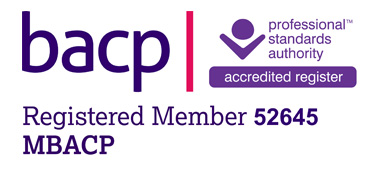Frequently asked questions
How long will it take?
This depends on what your needs are. Sometimes people have a very specific reason for seeking counselling and decide that they would like this to be the focus of the work. In other cases the immediate cause of distress is less apparent and may be of a more deep-seated nature, which would require a longer more open-ended approach. This is something that we would decide together following our initial consultation.
How long is a session?
Sessions are usually weekly and last for 50 minutes. Following our initial consultation, we will agree a day and time which will become your regular session time.
How much do you charge?
Please click on the link to the left of this page for information on fees.
What kind of areas are you experienced in?
- Stress
- Anxiety
- Panic attacks
- Depression
- Bereavement and loss
- Relationship difficulties
- Self-esteem
- Abuse (sexual, physical, and emotional)
- Trauma, and post traumatic stress
- Identity issues
- Sexuality
- Problems with addiction
- Problems with obsessive behaviour
How confidential is confidential?
Your trust is fundamental. I treat all contact with you and information disclosed to me as confidential. In line with the BACP ethical code of practice I undertake professional supervision of my work. As such any information my supervisor receives is also treated as confidential. However, it is important to understand that confidentiality is limited by legal obligations and issues relating to the serious and immediate risk of harm to yourself or others. In such instances , I would encourage you to make the disclosure first through the appropriate channels, or seek help from appropriate outside agencies, and I would support you through this process.
How do I know if you are the right therapist for me?
Achieving mental wellbeing is not like healing a physical complaint, where often one method suits all ailments. We all have different personalities and the most important thing is to find someone that you feel you can connect with and talk to, irrespective of their theoretical orientation. The initial consultation is a mutual process and as such it is also an opportunity for you to decide whether you feel comfortable with me. There is no obligation to continue at this stage.
What does psychodynamic counselling mean?
The psychodynamic approach is based on the idea that, unconsciously, we recreate patterns from the past in our current relationships both with other people and towards ourselves. Such thoughts, feelings and behaviours are deep rooted, and can be, at times, unhelpful and destructive.
As we work together I will listen very carefully to you in order that we may explore and try to understand the less conscious aspects of your thoughts, feelings and behaviours, which may be contributing to the distress you are experiencing. Gaining insight into the nature of underlying emotional conflicts can bring relief, increase your self awareness; and provide you with the opportunity to change unhelpful patterns which you have previously repeated unconsciously.

